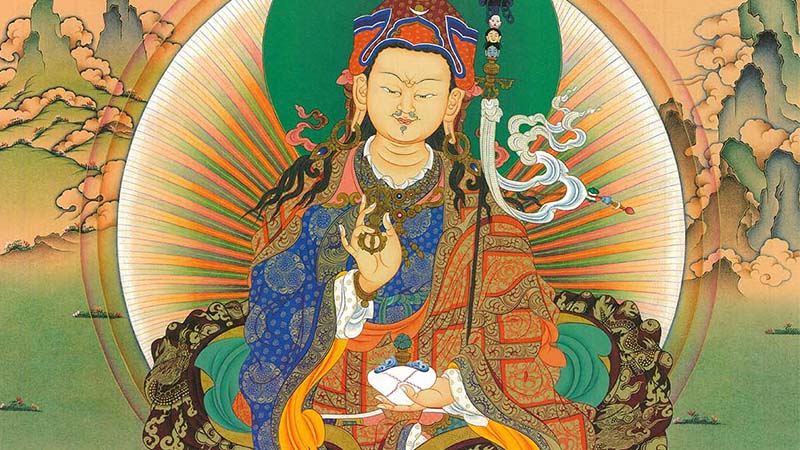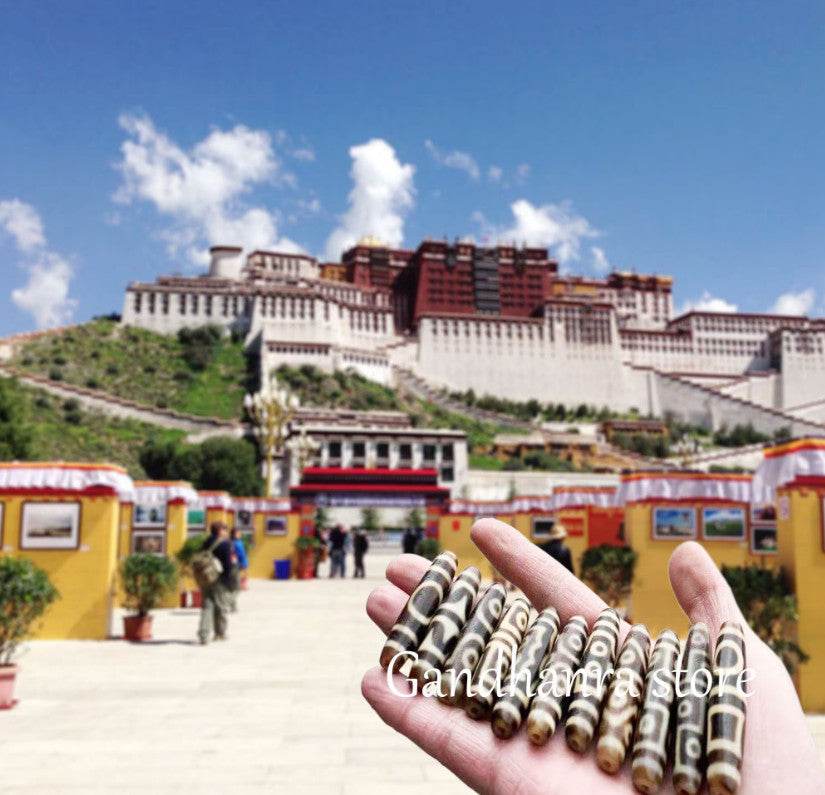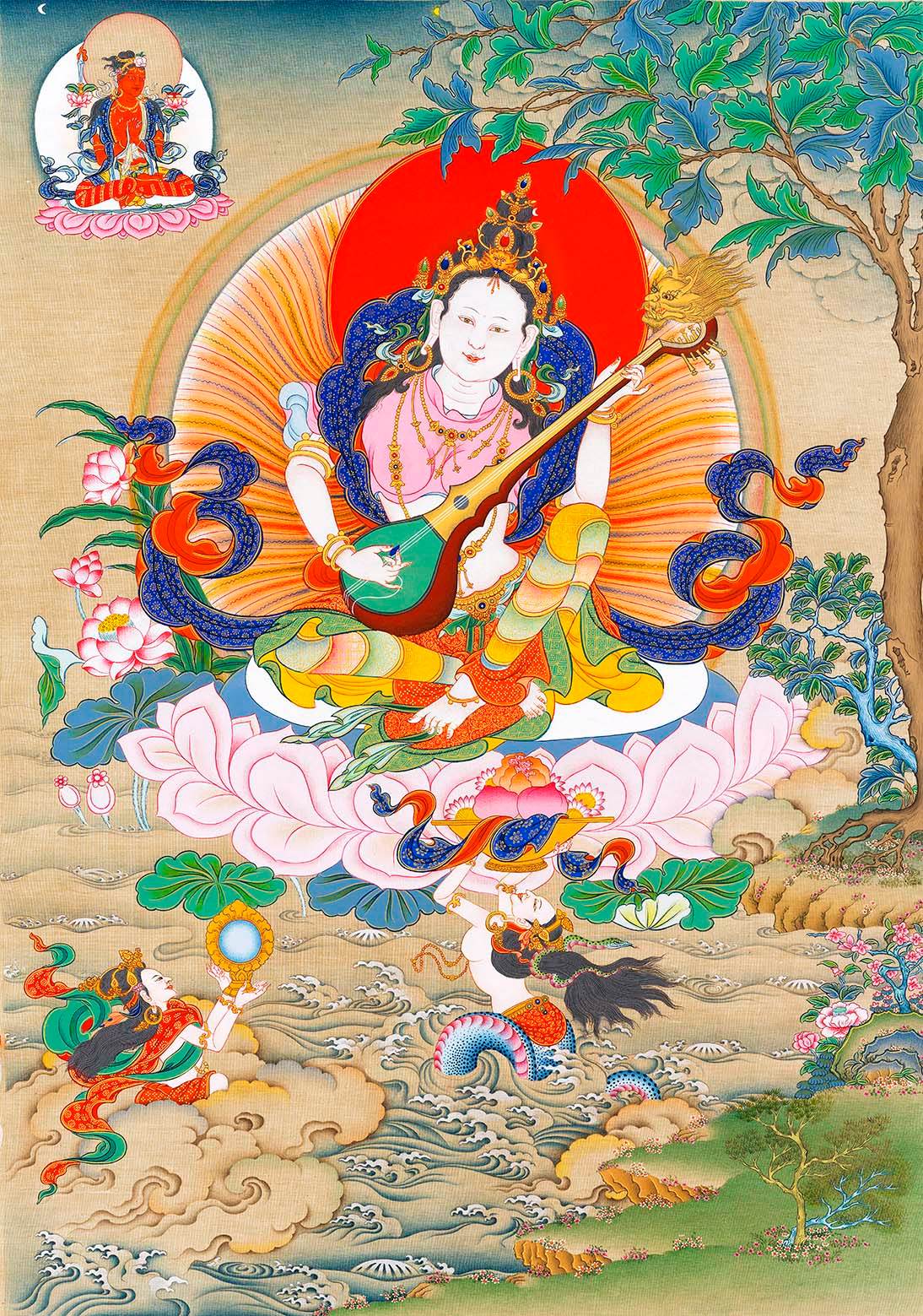
Guru Rinpoche (Padmasambhava): The Lotus-Born Master of Wisdom and Power
Guru Rinpoche,
the "Precious Master," embodies the transformative power of wisdom and compassion, subjugating obstacles and illuminating the path to enlightenment.
Introduction to Guru Rinpoche
Guru Rinpoche (Sanskrit: Padmasambhava; Tibetan: པདྨ་འབྱུང་གནས།), meaning "Lotus-Born," is the founder of Tibetan Buddhism and the central figure of the Nyingma school. Revered as the "Second Buddha," he introduced Vajrayana Buddhism to Tibet and hidden lands, mastering supernatural forces to tame negative energies and establish the Dharma. His wisdom and miraculous powers symbolize the union of method and insight.




The Origins and History of Guru Rinpoche
Born from a lotus flower in the land of Oddiyana (modern-day Pakistan/Afghanistan), Guru Rinpoche was invited by the Tibetan king Trisong Detsen in the 8th century to subdue demonic forces hindering the construction of Samye Monastery—the first Buddhist monastery in Tibet. Through his profound realization and mastery of tantric practices, he pacified obstacles and cemented Buddhism’s roots in Tibet.
He is regarded as an emanation of both Buddha Amitabha (representing wisdom) and Avalokiteshvara (compassion).

The Symbolism of Guru Rinpoche
Appearance: Wrathful yet compassionate expression, signifying the power to transform negativity.
Hat (Lotus Hat): Represents his pure birth and authority as a tantric master.
Vajra and Skull Cup (Kapala): Symbolize skillful means and wisdom, and the transformation of negative emotions.
Khatvanga (Staff): Represents the union of wisdom and compassionate activity, adorned with a trident and three severed heads (symbolizing the three kayas).
Posture (Royal Ease): Reflects his mastery over samsara and nirvana.




The Guru Rinpoche Mantra (Heart Mantra)
The most powerful mantra associated with Guru Rinpoche is:
“Om Ah Hum Vajra Guru Padma Siddhi Hum” (ༀ་ཨ་ཧུཾ་བཛྲ་གུ་རུ་པདྨ་སིདྡྷི་ཧུཾ།)
Meaning of the Mantra:
Om Ah Hum: Purify body, speech, and mind.
Vajra: Indestructible diamond nature of reality.
Guru: Spiritual master.
Padma: Lotus (his name).
Siddhi: Accomplishment, spiritual power.
Hum: Invocation of enlightened mind.
Chanting this mantra invokes Guru Rinpoche’s blessings for protection, spiritual growth, and overcoming inner and outer obstacles.


How to Connect with Guru Rinpoche
Meditation: Visualize him radiating light, dissolving confusion and fear.
Mantra Recitation: Chant “Om Ah Hum Vajra Guru Padma Siddhi Hum” 21 or 108 times daily.
Offerings: Light lamps, offer saffron water, or recite prayers like the "Seven-Line Prayer."
Study Termas: Explore his revealed teachings (termas) for deeper practice.


Conclusion
Guru Rinpoche remains a timeless source of inspiration and empowerment for practitioners. His life and teachings demonstrate that enlightenment is accessible through devotion, wisdom, and courageous compassion.
Whether facing inner demons or external challenges, invoking Guru Rinpoche can bring profound clarity and strength.
May the blessings of Guru Rinpoche guide your path to awakening!










